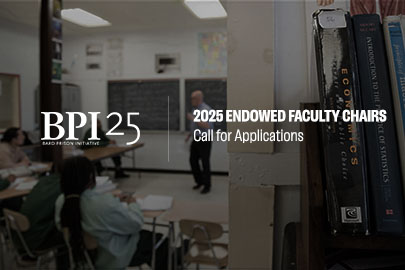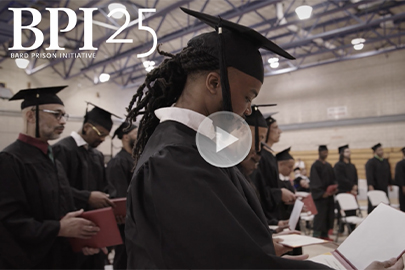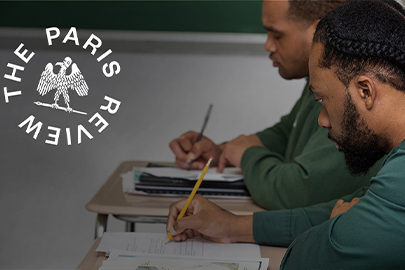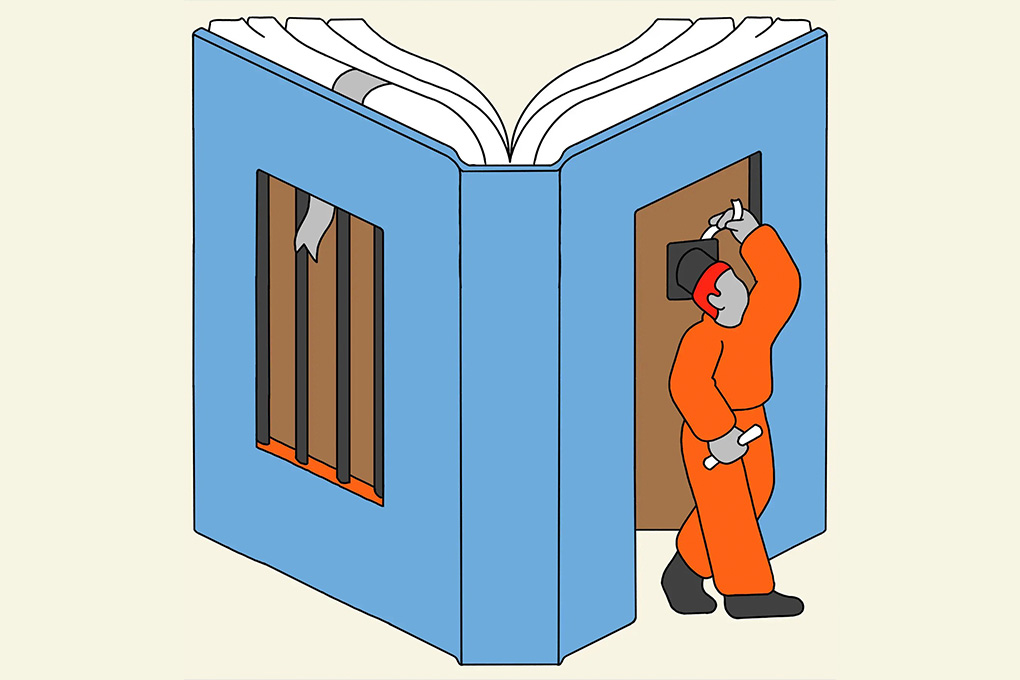This film following students of the Bard Prison Initiative is a tribute to their ambition and endeavour – and an indictment of the absence of funding for such programmes
It should not be strange to hear prisoners talk about The Oresteia or Moby-Dick or eukaryotic cell structure – but it is. If it were not, BBC Four’s two-part Storyville documentary College Behind Bars would be neither interesting nor necessary. As things stand, it is both of these things, intensely.
Directed by Lynn Novick and executive-produced by Ken Burns (maker of the celebrated 1990 series The Civil War and many others, including last year’s Country Music), it follows several prisoners of New York state’s Eastern Correctional Facility – a maximum-security prison for men – and one at Taconic Correctional Facility, a medium-security prison for women. All of them are working towards a college degree under Bard College’s Bard Prison Initiative (BPI).
In the words of Max Kenner, its founder and executive director, the BPI “is a very simple experiment: what happens when we provide the kind of education that traditionally in the US is only provided to lucky, privileged, rich people to others?”
The BPI provides courses for associate degrees (between a high school diploma and a bachelor’s degree) and bachelor’s degrees inside six New York prisons, using the same curriculum as it does on the outside. It brings the same academic rigour, standards and expectation of commitment and engagement to its imprisoned students as it does to the rest.
The programme is one of the last survivors of Bill Clinton’s notorious 1994 crime bill, which eliminated federal aid for higher education in jails. After a brief, golden period of consensus that equipping prisoners with skills and knowledge was a good, practical and moral use of taxpayer dollars, the issue had become a political lightning rod. The president gave in. “We tried to convince the powers that be that this was a shortsighted decision,” says Anthony Annucci, the acting commissioner for New York’s department of corrections, “but we couldn’t compete with the 20-second soundbite.” A recidivism rate among BPI graduates of 4%, compared with the usual 50%, did nothing to change anyone’s mind.
College Behind Bars remains – especially in the first episode – admirably focused on the practicalities of prison life and prison programmes. It unpicks and dispels the myth that prisoners’ time is their own, to use or waste as they wish, and with it the idea that inmates succeed on educational programmes because they have no distractions. The headcount – which drags prisoners back to their cells five times a day – is disruptive enough, but the constant noise and unrest means that a lot of the students work from late at night until early in the morning; it is the only time that they can trust they won’t be interrupted.
Rule infractions can lead to solitary confinement and massive disruption to their academic progress. These happen often because there are many rules, and because immersing yourself in The Oresteia does not automatically or immediately make you a “model prisoner”. Nor does it protect you from injustice. One student, Rodney Spivey-Jones, nearly loses everything when a guard takes exception to the language used in one of his short stories and deems it a punishable offence.
Every prisoner here comes with a wealth of compelling backstory, but it is a tribute to the discipline and focus of the film-makers that only a few are related in full. Sebastian Yoon’s account of parental abandonment and poverty is enough to stand for all. Taconic inmate Shawnta Montgomery’s account of an upbringing and life that brought about the death of her young daughter outlines a path that is surely common to many. It is enough to evoke the difference between their lives and “normal” lives without overwhelming or numbing the viewer with a welter of miseries and narratives that become indistinguishable.
It also allows the film’s focus to remain on the educational programme and its effects. Heartfelt testimonies from current and past participants abound about the internal transformations wrought. “We become civic beings,” says Woon. “It’s changing fundamentally the way I think, behave and interact with people,” says Dyjuan Tatro (the eukaryotic expert). Giovannie Hernandez says a friend forced him to apply for the programme after Hernandez got his GED (an alternative to the high school diploma) on Rikers Island. “Probably the kindest, most loving thing anyone’s ever done for me,” he says.
The BPI is funded entirely by donations. Studies reckon that every $1 invested in higher education in prison saves the public $5 overall. Taxpayer dollars are not at work.



